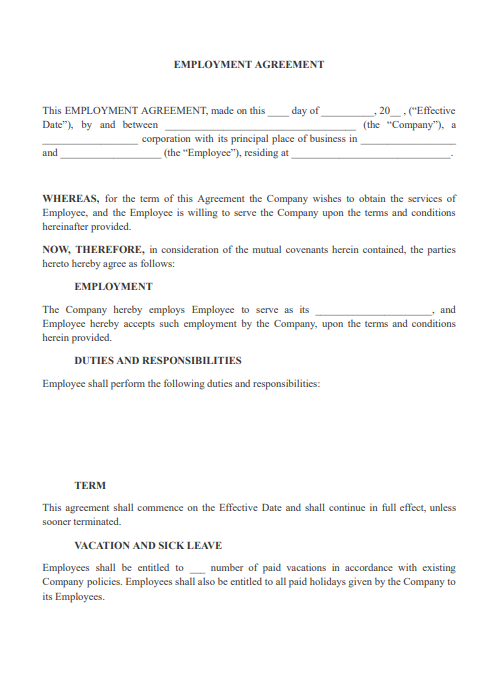If you’ve decided that you want to hire an employee rather than an independent contractor, then you’ll likely need an Employment Agreement. An Employment Agreement governs the relationship between an employee and an employer and needs to comply with both state and federal laws. And what it does is that it often sets out the position and remuneration and any terms around the employment.
So what does it need to include? Under the Fair Work Act employees are entitled to a certain set of standards.
This includes things like
- hourly rates,
- request for flexible working arrangements,
- kinds of leave that they’re entitled to,
- public holidays,
- notice of termination and
- redundancy pay.
- description of the position,
Employment Agreements may also contain details about what the employee’s duties will be and who they report to.
If an Employment Agreement is clearly drafted, it can provide certainty at the outset and reduce the likelihood of any disputes or misunderstandings between employers and employees.
Related Forms:
Other Forms
- Affidavit Forms
- Assignment Forms
- Attorney Forms
- Bankruptcy Forms
- Bill of Sales Forms
- Borrow, Lend & Collection Forms
- Business Forms
- Confidentially Forms
- Contract Forms
- Copyright Forms
- Corporation Forms
- Credit Form
- Declaration Form
- Deed Forms
- Divorce Forms
- Employment Forms
- Entertainment Contract Forms
- Family Law Forms
- Free Will Forms
- Government Form
- Health Care Forms
- Homestead Form
- Indemnity Agreement Form
- Intellectual Property Forms
- Internet Forms
- Landlord and Tenant Forms
- Lease and Rental Forms
- Letter Forms
- Limited Liability Co. Form
- Non-Compete Forms
- Non-Disclosure Forms
- Notice Forms
- Parental Permission Forms
- Partnership Forms
- Power of Attorney Forms
- Premarital Forms
- Promissory Notes
- Real State Forms
- Release Forms
- Sale & Purchase Forms
- Technology Forms
- Trademarks Forms
- UCC Forms


